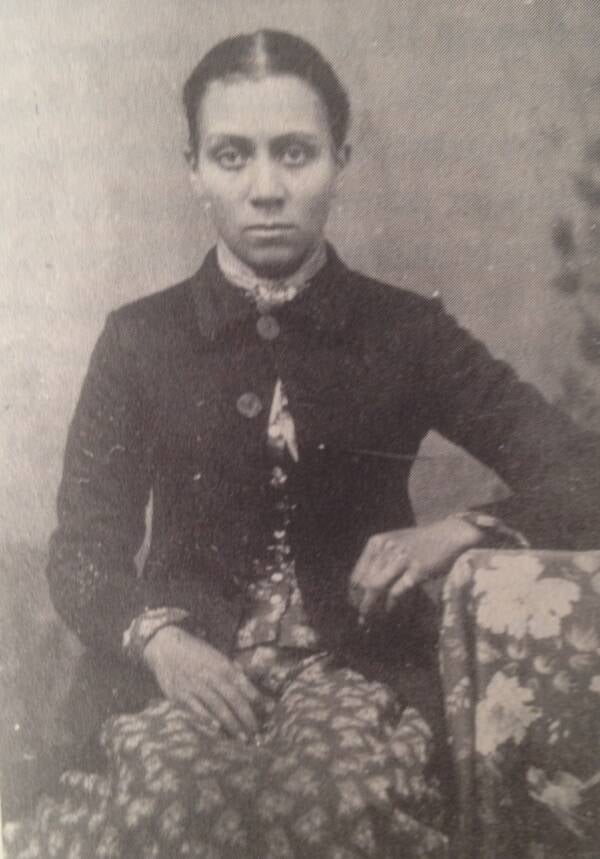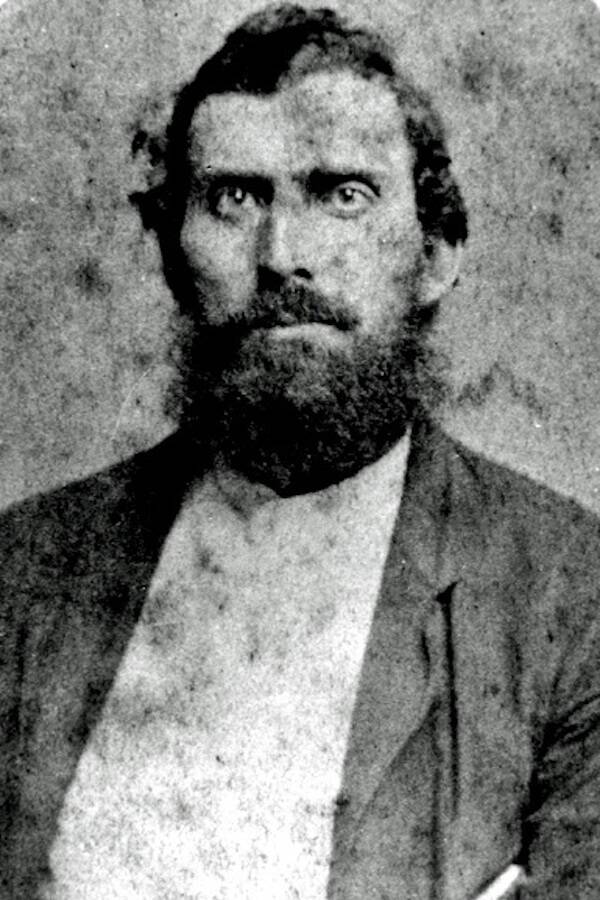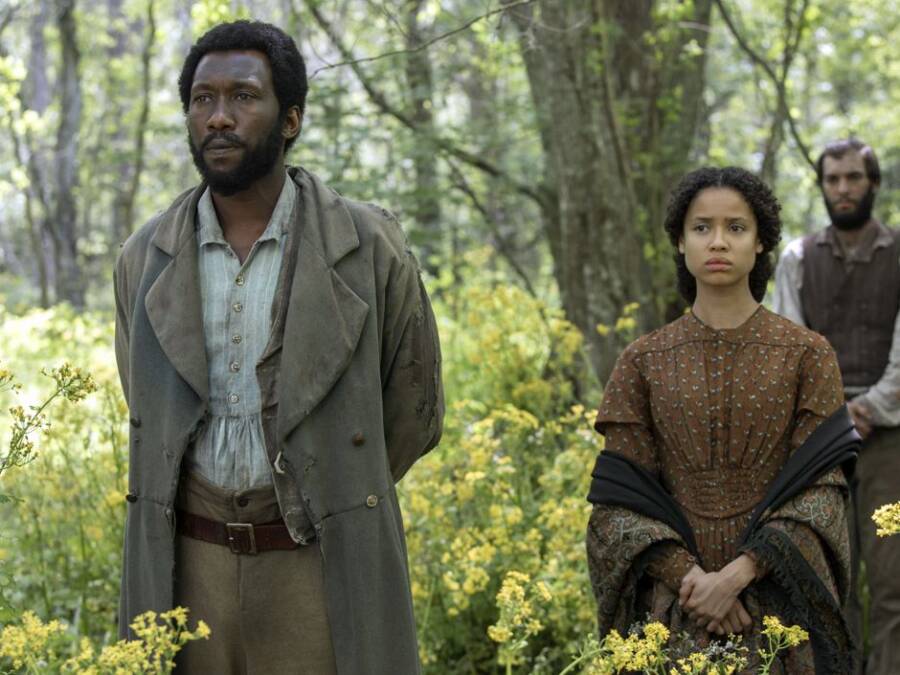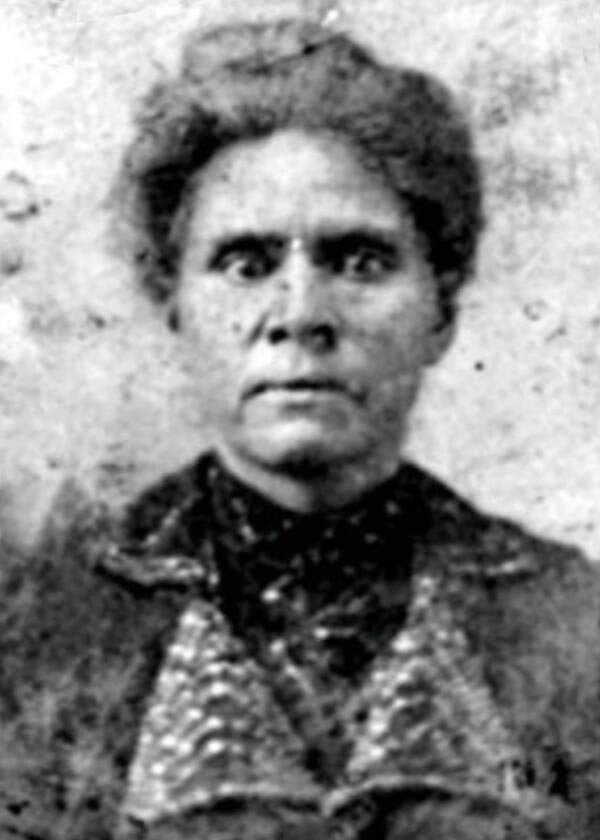During the Civil War, Rachel Knight joined forces with a white Southern Unionist named Newton Knight — and helped him wage a guerrilla campaign against Confederates in Mississippi.
As the Civil War raged on in Mississippi, a Confederate deserter named Newton Knight and his band of Southern Unionists evaded capture by hiding in the swamps of Jones County — but they didn’t do it alone.
Rachel Knight, a woman who had been enslaved by Knight’s grandfather, assisted and cared for the men in the swamps. She soon became a crucial ally of their cause — and the common-law wife of Newton Knight.
But although the legacy of Newton Knight and his men lives on, Rachel Knight’s pivotal role in the story has been largely forgotten by history.
The Early Years Of Rachel Knight

Knight FamilyOne of only two photos believed to exist of Rachel Knight.
Rachel Knight was born into slavery in 1840, in Macon County, Georgia. Forced to work in the fields and in the home of her first enslaver, Knight was also subjected to sexual abuse at the hands of her owner, his sons, and other local white men. She gave birth to her first child when she was just 15.
Shortly thereafter, Rachel Knight became pregnant again. She was then moved to the home of another slaveholder, John “Jackie” Knight, in Jones County, Mississippi. There, she gave birth to her second child.
Once again, Rachel Knight was forced to perform household labor. She was also subjected to sexual abuse again by Jackie Knight’s son, Jesse Davis Knight. Around 1860, she gave birth to his son, Jeffrey Early Knight.
After the birth of Jeffrey, Jackie Knight deeded Rachel and Jeffrey to Jesse Davis Knight in his will, ensuring the enslavement of his own grandchild.
Despite the trauma of Rachel Knight’s early years, she was able to find some time to herself by tending to her garden and becoming a folk doctor, treating enslaved people on her plantation and runaway slaves from elsewhere.
Her position in the Knights’ home, talents as a healer, and connections with other slaves would all prove advantageous during the Civil War.
How The Free State Of Jones Emerged

Public DomainNewton Knight was the grandson of the man who owned Rachel Knight and later became her common-law husband.
Rachel Knight probably knew of Newton Knight before the Civil War. After all, he was the grandson of Jackie Knight and the nephew of Jesse Davis Knight. Though the nature of Newton’s relationship with Rachel before the war remains unclear, their stories would soon become inextricably linked.
In January 1861, Mississippi seceded from the Union, and members of the state’s secession convention made it very clear why: “Our position is thoroughly identified with the institution of slavery — the greatest material interest of the world.” Mississippi, along with other pro-slavery states in the South, would then form the Confederate States of America.
Soon after, the Civil War would erupt in April 1861. At first, Newton Knight enlisted to fight on behalf of the Confederacy, perhaps to avoid being drafted or because he simply enjoyed being a soldier.
But unlike other Confederate soldiers, Newton Knight was against secession and likely had no interest in preserving slavery. He was a yeoman farmer and did not want to fight a slaveholder’s war. By 1862, he had deserted the Confederate Army.
Though Newton Knight was briefly captured for desertion in 1863 and forced to return to service, he deserted yet again and made his way back to his ruined farm in Jasper County, on the border of Jones County. But he was not alone — he had a band of self-described Unionists by his side.

STX EntertainmentThe 2016 movie Free State of Jones stars Mahershala Ali, Matthew McConaughey, and Gugu Mbatha-Raw.
In Jasper and Jones Counties, Newton Knight and his allies — both white and Black — evaded capture by hiding in the swamps. They then waged a guerrilla war against the Confederacy, seizing supplies meant for troops, impairing the tax collection system, and killing Confederates.
But they may not have survived had it not been for Rachel Knight. Newton Knight’s “most reliable ally and source of sustenance,” she provided food, medicine, and other supplies for him and his men. In return, Newton Knight did what he could to help secure her freedom.
In the meantime, Rachel Knight used her position in the Knight home to pick up critical information about the Confederate Army. And when Confederates tried to use bloodhounds to find Newton Knight and his men, she taught the Confederate deserters how to sprinkle red pepper to irritate the dogs’ noses and how to hide glass and poison in the dogs’ food.
It certainly helped that Jesse Davis Knight was largely out of the picture, fighting for the Confederates. And though he had briefly returned home in 1863, he would die the next year of pneumonia at a military hospital.
By 1864, Newton Knight had overthrown the Confederate authorities in Jones County. It later became known as the Free State of Jones — and some claim that it actually seceded from the Confederate States of America.
The Legacy Of Rachel Knight And Her Family

Herman Welborn CollectionA presumed photo of Rachel Knight, taken sometime after the Civil War.
At some point, Newton Knight formed a relationship with Rachel Knight. By the end of the Civil War in 1865, the two had left behind the swamps to return to Newton’s home. There was just one small problem — Newton Knight was already married to a white woman named Serena.
Newton Knight decided to construct a new home for Rachel and her children on the same farm where he and Serena lived. By 1870, Rachel Knight had six children in total, two of whom had likely been fathered by her first enslaver or his son, two of whom had been fathered by Jesse Davis Knight, and two of whom had been fathered by Newton Knight.
As the years went on, Rachel and Newton Knight would go on to have three additional children together. Newton never divorced Serena — with whom he had nine children — but the couple eventually separated.
Meanwhile, Newton Knight began a common-law marriage with Rachel. Already considered a traitor for fighting against the Confederacy, Newton’s choice to claim his mixed-race children led to his reputation being damaged in Mississippi — and his family members becoming social pariahs.
However, Rachel did get to enjoy some financial independence in her final years, since Newton Knight deeded 160 acres of land to her in 1876. And in 1881, she joined the Church of Jesus Christ of Latter-day Saints, making her perhaps one of the earliest Black Mormons. She died in her late 40s in 1889, and Newton Knight had her buried in the Knight Family Cemetery.
The following years were turbulent for the Knight family. Many of Rachel’s children were subjected to Jim Crow. Descendants of Newton and Serena often refused to acknowledge the descendants of Newton and Rachel.
Sadly, the division among the descendants of Newton Knight continues to this day. And as a result, the legacy of Rachel Knight was largely forgotten until the 2016 release of the film Free State of Jones, starring Matthew McConaughey as Newton Knight and Gugu Mbatha-Raw as Rachel Knight.
Now, the story of Rachel Knight is getting a new wave of interest. Unfortunately, there are no written records of her thoughts. But from assisting Confederate deserters to helping found the Free State of Jones, there’s no question that she found moments of triumph in the midst of tragedy — despite having all the odds stacked against her.
After learning about Rachel Knight, read about how Robert Smalls escaped from slavery by stealing a Confederate ship. Then, take a look through these haunting photos that show the reality of the Civil War.





